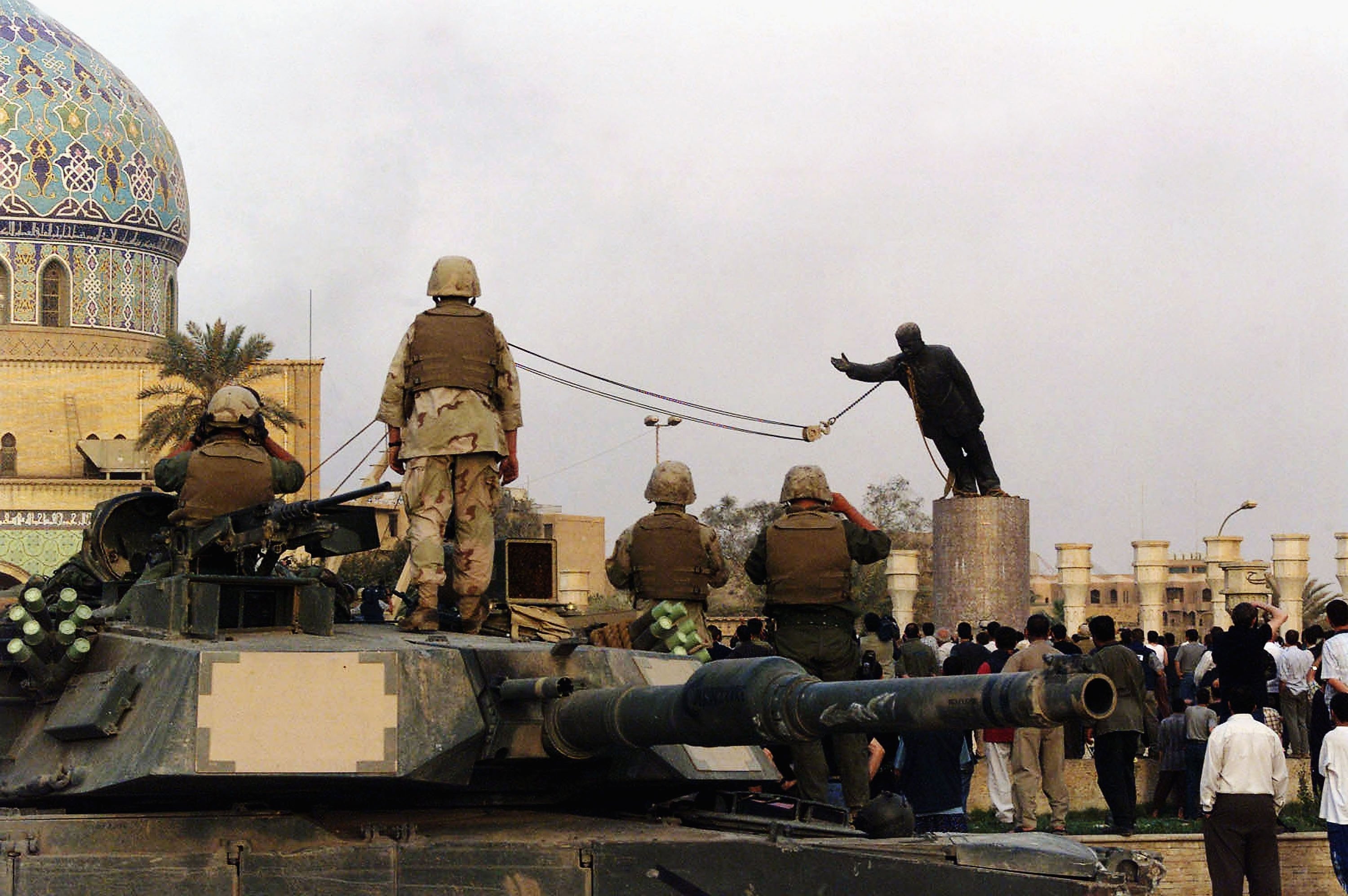The dishonesty of this so-called dossier: Pages based on ‘probably’ and ‘if’ are not good motives for war
September 2002: Blair’s reason to go to war cannot be based on ‘ifs’, ‘buts’ and ‘coulds’, writes Robert Fisk


Tony Blair’s “dossier” on Iraq is a shocking document. Reading it can only fill a decent human being with shame and outrage. Its pages are final proof – if the contents are true – that a massive crime against humanity has been committed in Iraq. For if the details of Saddam’s building of weapons of mass destruction are correct – and I will come to the “ifs” and “buts” and “coulds” later – it means that our massive, obstructive, brutal policy of UN sanctions has totally failed. In other words, half a million Iraqi children were killed by us for nothing.
Let’s go back to 12 May 1996. Madeleine Albright, the US secretary of state, had told us that sanctions worked and had prevented Saddam from rebuilding weapons of mass destruction (WMD). Our Tory government agreed, and Tony Blair faithfully toed the line. But on 12 May, Ms Albright appeared on CBS television. Leslie Stahl, the interviewer, asked: “We have heard that half a million children have died. I mean, that’s more than died in Hiroshima. And, you know, is the price worth it?” To the world’s astonishment, Ms Albright replied: “I think this is a very hard choice, but the price, we think the price is worth it.”
Now we know – if Mr Blair is telling us the truth – that the price was not worth it. The price was paid in the lives of hundreds of thousands of children. But it wasn’t worth a dime. The Blair “dossier” tells us that, despite sanctions, Saddam was able to go on building weapons of mass destruction. All that nonsense about dual-use technology, the ban on children’s pencils – because lead could have a military use – and our refusal to allow Iraq to import equipment to restore the water-treatment plants that we bombed in the Gulf war, was a sham.
This terrible conclusion is the only moral one to be drawn from the 16 pages that supposedly detail the chemical, biological and nuclear horrors that the Beast of Baghdad has in store for us. It’s difficult, reading the full report, to know whether to laugh or cry. The degree of deceit and duplicity in its production speaks of the trickery that informs the Blair government and its treatment of MPs.
There are a few titbits that ring true. The new ammonium perchlorate plant illegally supplied by an Indian company – which breached those wonderful UN sanctions, of course – is a frightening little detail. So is the new rocket-test stand at the al-Rafah plant. But this material is so swamped in trickery and knavery that its inclusion becomes worthless.
Here is one example of the dishonesty of this “dossier”. On page 45, we are told – in a long chapter about Saddam’s human rights abuses – that “on March 1st, 1991, in the wake of the Gulf war, riots [sic] broke out in the southern city of Basra, spreading quickly to other cities in Shia-dominated southern Iraq. The regime responded by killing thousands.”
On 18 August this year, the very same Dr Blix told Associated Press that he couldn’t say with certainty that Baghdad possessed WMDs
What’s wrong with this paragraph is the lie in the use of the word “riots”. These were not riots. They were part of a mass rebellion specifically called for by President Bush Jnr’s father and by a CIA radio station in Saudi Arabia. The Shia Muslims of Iraq obeyed Mr Bush Snr’s appeal. And were then left to their fate by the Americans and British, who they had been given every reason to believe would come to their help. No wonder they died in their thousands. But that’s not what the Blair “dossier” tells us.
And anyone reading the weasel words of doubt that are insinuated throughout this text can only have profound concern about the basis on which Britain is to go to war. The Iraqi weapons programme “is almost certainly” seeking to enrich uranium. It “appears” that Iraq is attempting to acquire a magnet production line. There is evidence that Iraq has tried to acquire specialised aluminium tubes (used in the enrichment of uranium) but “there is no definitive intelligence” that it is destined for a nuclear programme.
If Iraq obtained fissile material, Iraq could produce nuclear weapons in one or two years. It is “difficult to judge” whether al-Hussein missiles could be available for use. Efforts to regenerate the Iraqi missile programme “probably” began in 1995. And so the “dossier” goes on.
Now, maybe Saddam has restarted his WMD programme. Let’s all say it out loud, 20 times: Saddam is a brutal, wicked tyrant. But are “almost certainly”, “appears”, “probably” and “if” really the rallying call to send our grenadiers off to the deserts of Kut-al-Amara?
There is high praise for UN weapons inspectors. And there is more trickery in the relevant chapter. It quotes Dr Hans Blix, the executive chair of the UN inspection commission, as saying that in the absence of (post-1998) inspections, it is impossible to verify Iraqi disarmament compliance.
But on 18 August this year, the very same Dr Blix told Associated Press that he couldn’t say with certainty that Baghdad possessed WMDs. This quotation is excised from the Blair “dossier”, of course.
So there it is. If these pages of trickery are based on “probably” and “if”, we have no business going to war. If they are all true, we murdered half a million Iraqi children.
How’s that for a war crime?


Join our commenting forum
Join thought-provoking conversations, follow other Independent readers and see their replies
Comments